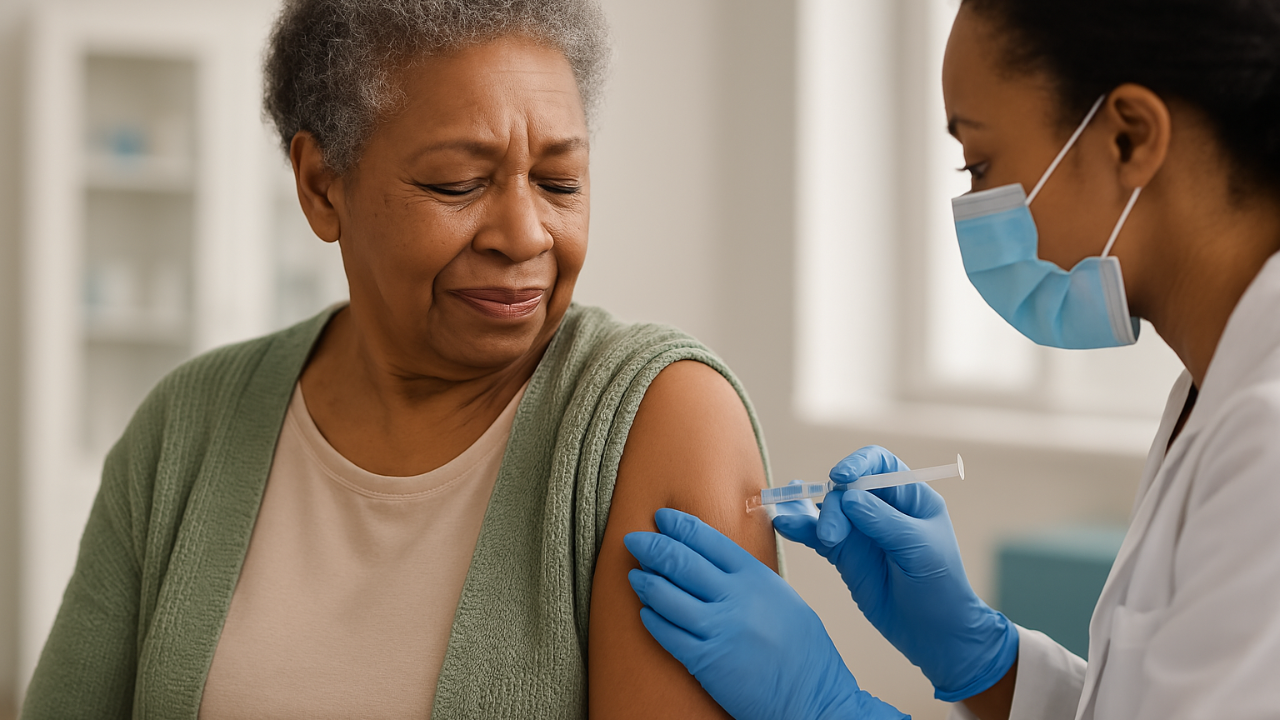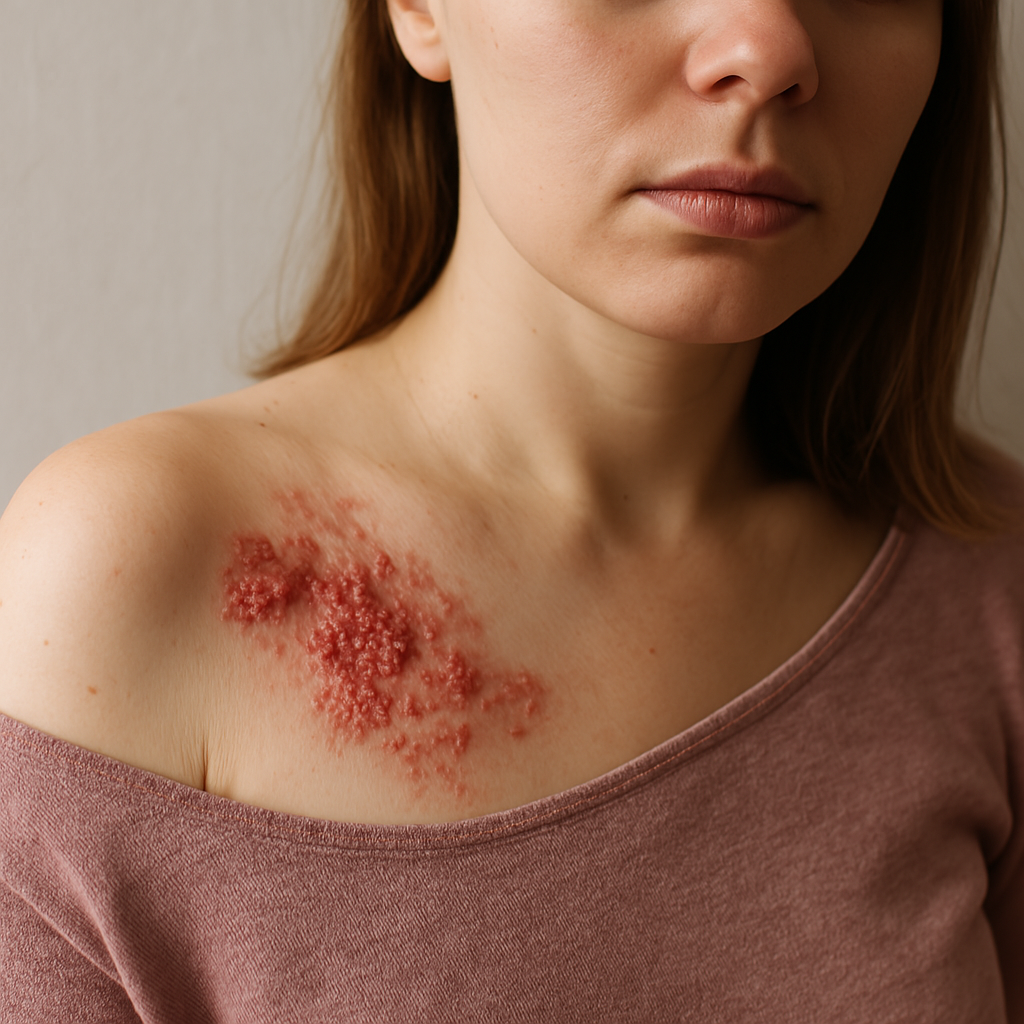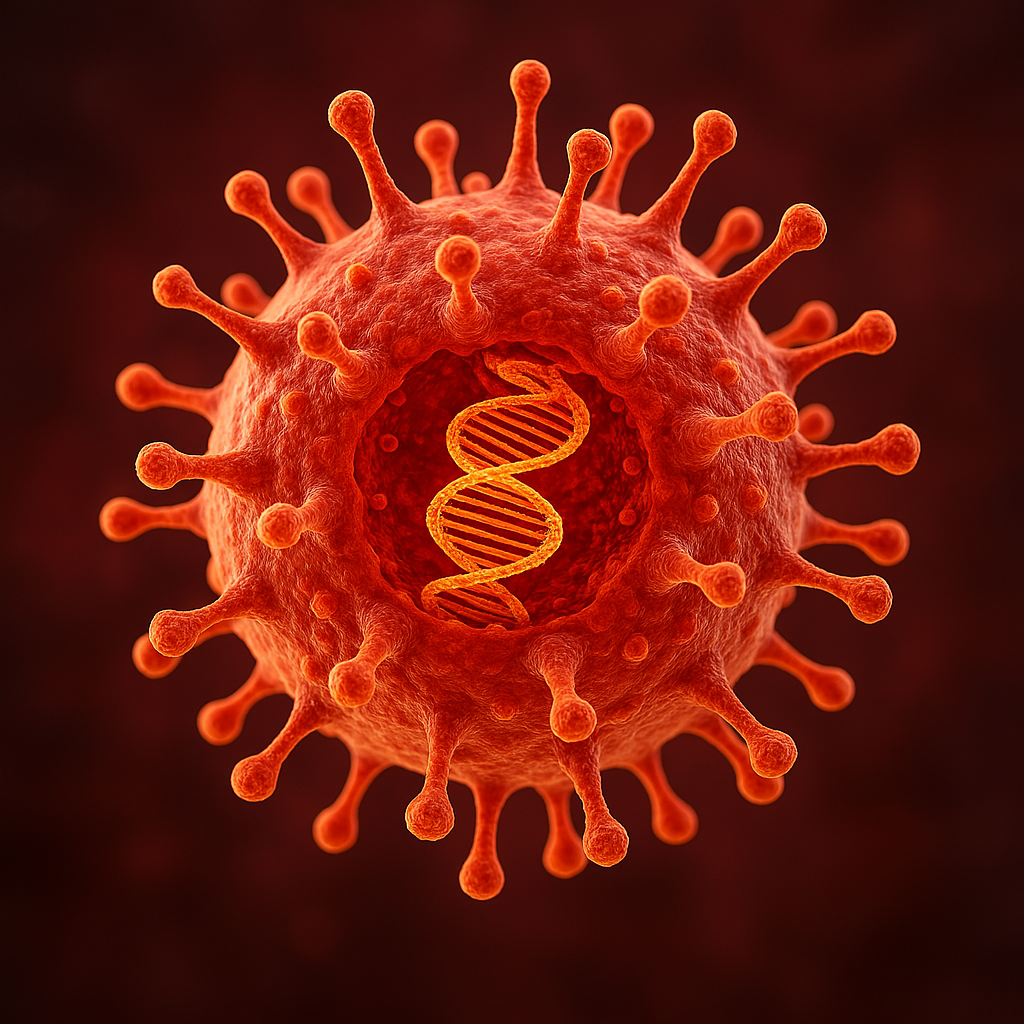New Study: Shingles Vaccine Lowers Dementia Risk by 20%
Apr 08, 2025
Table of Contents
1. Introduction: What Is Shingles and Who Needs the Shingles Vaccine?
2. New Study Links Shingles Vaccine to Lower Dementia Risk
3. How the Study Was Conducted: A Natural Experiment
4. Key Findings: A 20% Reduced Risk of Dementia
5. Why Might the Vaccine Help Protect Your Brain?
6. What This Means for Healthy Aging
7. Conclusion: Should You Get the Shingles Vaccine for Brain Health?
Introduction
What Is Shingles and Who Needs the Shingles Vaccine?
Shingles, also known as herpes zoster, is a painful skin rash caused by the reactivation of the varicella-zoster virus—the same virus that causes chickenpox. After you’ve had chickenpox, the virus can stay dormant in your nerve tissue for years and reactivate later in life as shingles.
Shingles is more common in adults over 50, especially women, and can lead to long-term nerve pain and complications like postherpetic neuralgia. But now, scientists are discovering that shingles may be more than just a painful rash—it could be linked to brain health and dementia.
Who Should Get the Shingles Vaccine?
In the U.S. and many other countries, health guidelines recommend that adults age 50 and older receive the Shingrix vaccine—a newer, more effective shingles vaccine given in two doses. This vaccine is especially recommended for:
- Adults 50+ regardless of past shingles episodes
- People with weakened immune systems
- Anyone wanting to prevent painful shingles outbreaks
But here’s the exciting part: A new study suggests this vaccine may also lower the risk of developing dementia.

New Study Links Shingles Vaccine to Lower Dementia Risk
A groundbreaking study published in Nature (2025) found that receiving the live-attenuated shingles vaccine (Zostavax) was associated with a 20% reduction in the risk of being diagnosed with dementia over a 7-year period.
This is huge news for anyone concerned about cognitive decline, Alzheimer's disease, or memory loss as they age.

How the Study Was Conducted: A Natural Experiment
Unlike past research, which only found associations, this study used a natural experiment in Wales. Here’s what happened:
- People born before September 2, 1933, were not eligible for the shingles vaccine.
- Those born after that date were eligible.
- Researchers used this unique cutoff to compare the two groups—who were nearly identical except for vaccine eligibility.
This design allowed them to minimize bias and confounding factors and get much closer to proving that the vaccine causes the reduction in dementia risk—not just correlates with it.
Key Findings: A 20% Reduced Risk of Dementia
Here’s what the researchers discovered:
|
Finding |
Details |
|
Dementia Risk |
People who received the shingles vaccine were 20% less likely to be diagnosed with dementia over 7 years. |
|
Stronger for Women |
The protective effect was stronger in women than in men. |
|
Not Due to Other Factors |
The vaccine didn't impact other diseases or increase use of other preventive health measures—indicating a true protective effect against dementia. |
|
Confirmed |
Results were confirmed in another population using death certificate data in England and Wales. |

Why Might the Vaccine Help Protect Your Brain?
Researchers believe there are two possible ways the shingles vaccine helps:
- Prevents reactivation of the virus in the nervous system, which could damage brain tissue or trigger inflammation.
- Boosts the immune system in a broader way that helps the brain resist cognitive decline—especially in women.
These off-target effects of vaccines, particularly live-attenuated ones like Zostavax, may stimulate immune pathways that protect the brain.
What This Means for Healthy Aging
As a woman over 50, you’re already thinking about ways to stay sharp, active, and independent as you age. This study adds a possible powerful tool to your healthy aging toolkit.
Getting the shingles vaccine may not only protect you from a painful rash—it may help protect your mind.
With dementia affecting millions of women every year, prevention strategies are more important than ever. And this vaccine, which is already recommended for adults over 50, could offer dual benefits for your body and your brain.
Conclusion
Should You Get the Shingles Vaccine for Brain Health?
If you’re 50 or older and haven’t received the shingles vaccine yet, the findings from this study suggest that now might be the perfect time to talk to your doctor.
This new research offers promising evidence that shingles vaccination could be a simple, effective step to help prevent dementia—on top of its well-known benefits in preventing shingles.
Aging gracefully isn’t just about looking good—it’s about protecting your mind, too. The shingles vaccine might be one more way to do just that.
Do you want to learn about foods that help lower your dementia risk? Check this article.
Dr. Diane Thompson, MD is board-certified in Physical Medicine and Rehabilitation with a subspecialty in Brain Injury Medicine. She is also board-certified in Lifestyle Medicine and Age Management Medicine and a certified health coach who helps women over 50 use Lifestyle Medicine and longevity science to reverse and help control chronic diseases and age healthfully. She is the author of this Amazon bestseller.
Disclosure: The information presented is for educational purposes and is not meant for diagnosis or treatment. No physician-patient relationship is intended. Discuss with your physician prior to making any changes to your health. Some of the links in this blog may be affiliate links, which are of no additional cost to you and allow me to keep the content free. These are products I’ve personally used.
Subscribe to MoRadiance® Woman Newsletter, the #1 newsletter for women over 50 who are looking for the latest strategies to maintain health, wellness, radiance, and longevity as they age. Each month I will share the latest age-management and lifestyle medicine strategies in your inbox.
